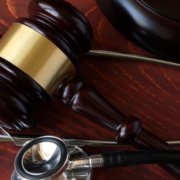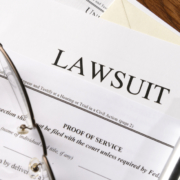Being Careful Of What To Share

Careful What You Share
Social media is the perfect platform for updating friends, family and the world about your life. If you are in an accident, your first instinct may be to post an update to your Facebook wall or Twitter profile. Stop right there!
Legal professionals advise clients to keep any sensitive information to themselves if they want any chance at landing a settlement. Why? Because everything that is posted on social media may be considered public. This means that information about an injury claim could be used against a plaintiff by the defense.
For anyone involved in litigation, it’s best to refrain from posting your thoughts on the case, your experience with the injury and your progress of recovery. This type of information is being watched for by lawyers and the people involved in your case. So think before you hit that “send” button and follow our tips on social media usage during a personal injury situation.
Keep Quiet Online
Hopefully your personal social media accounts are set to private. Research shows that most are not, so that should be your first step in using social media during litigation. This keeps outsiders from being able to scroll through your posts and read your updates.
That being said, it’s still common sense to keep all information about your personal injury accident, legal advice, photos of your injuries or other related tidbits out of the world of social media. Your personal injury attorney will advise you to keep quiet online for the best chance of winning your case. We know, this can be tough. But instead of posting a photo of your overall physical condition, ask a friend to stop by to talk about what’s going on. Face-to-face interaction can provide a much more intimate, comforting feeling than social media. That’s exactly what you need when trying to recover from a personal injury.
Biggest Mistakes
You’ve surely heard of stories about someone involved in a personal injury case posting photos of themselves engaged in vigorous activity such as a skiing or hiking trip. This actually happens. These types of photos are damaging in many ways, especially if you’re attempting to win a settlement that includes monetary compensation for chronic pain or serious injuries.
One overlooked mistake can be not alerting your friends and family members to follow the same guidelines.
Ask them to refrain from posting updates on your condition, even if the updates are meant for friends and family members. This means no tagging you in any posts that may have negative consequences for your case and absolutely no mention of any confidential deals that are reached in settlement negotiations.










Leave a Reply
Want to join the discussion?Feel free to contribute!